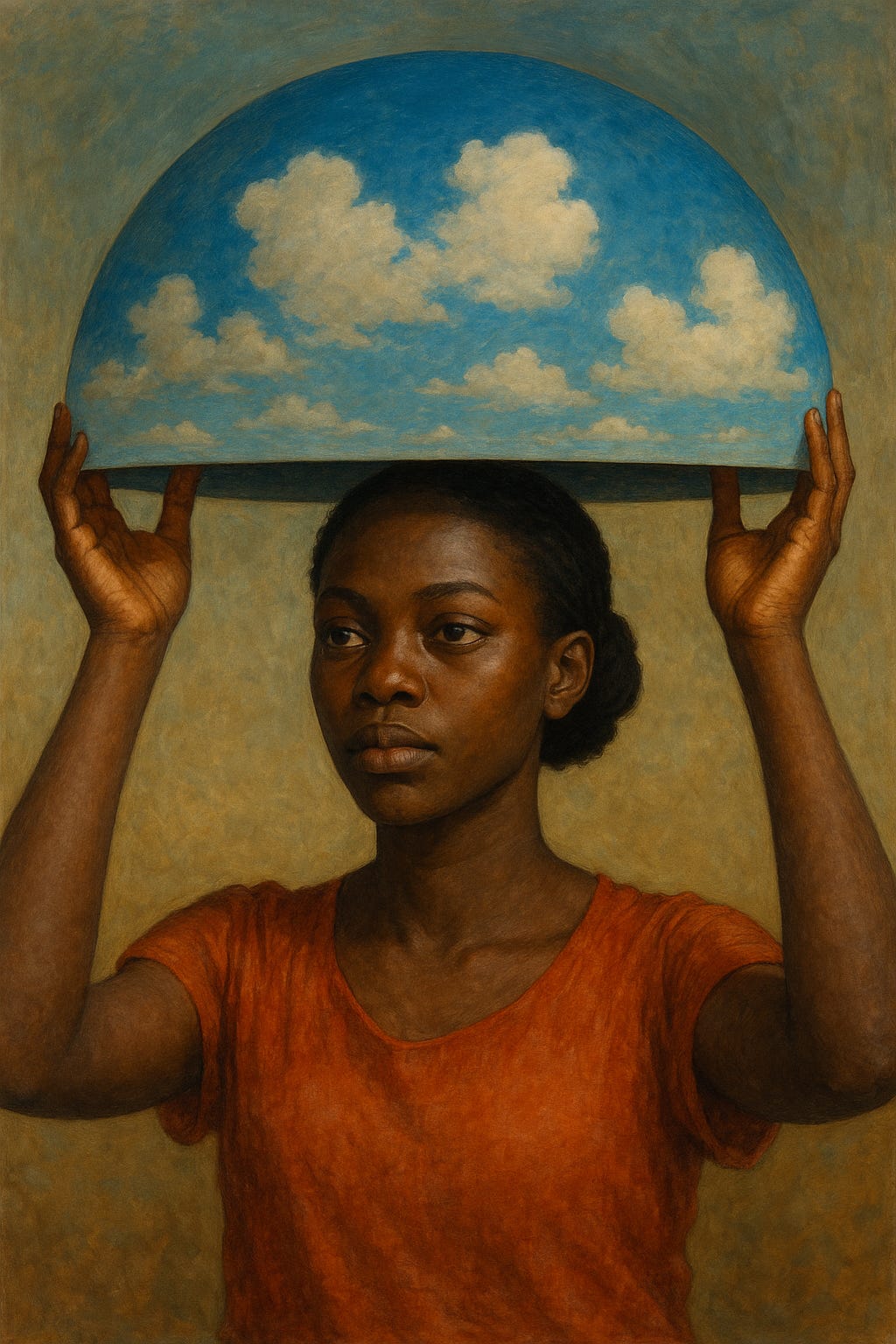Obìnrin
The Salt of Life
Women hold up the other Half of the Sky Thomas Sankara
We are living through a time of deep remembering.
We forgot who we are, and what wholeness looks like. We forgot the sacred balance that once governed our world.
Among these forgotten truths, none is more critical than the place of Obìnrin (the wombed-man), not merely as a nurturer of homes, but as a sovereign force in society, as the unseen current beneath the surface of civilization.
Among the Yoruba, this sacred truth was never meant to be forgotten.
In our language, our lores, and our lineages, Obìnrin is not a sentimental figure; she is sacred substance. Before kings are crowned, women are honored. Before a child’s destiny is declared, the voice of the woman, especially the mother, must be heard.
The very word Obìnrin, often casually translated as “woman,” carries deep etymological and spiritual significance in Yoruba thought. Unlike Ọkùnrin, which emphasizes strength (ọkun) and outward action, Obìnrin points to inward power, a sacred receptivity. It is believed to derive from Obì (essence or womb) and enìyàn (person or being), suggesting “the one who carries life within.” In contrast to the idea of mere gender classification, Obìnrin becomes a designation of cosmic responsibility: the nurturer, the custodian of continuity, the bearer of culture and consciousness. To be Obìnrin is to embody a vessel of becoming; to nurture not only children, but also communities, values, and visions.
To be Obìnrin is to be origin, to be anchor, to be mother Earth. This is the soul of Yoruba Feminism.
Not a borrowed ideology, but an indigenous wisdom, a remembering of feminine power as essential, not optional, to the becoming of a just and thriving Afrika.
The Feminine as Force, Not Flaw
Yoruba epistemology does not treat womanhood as a secondary condition. It recognizes the feminine as a cosmic principle, as old and essential as Orí itself. The term Obìnrin holds the idea of source, of sustenance, of moral grounding. This is why Ìyámi Osoronga, the mothers of spiritual power, are both revered and feared. They are not marginal deities; they are enforcers of justice, shapers of destiny, carriers of wisdom.
To forget the feminine, or to reduce it to the domestic, is to commit civilizational suicide.
In reclaiming Afrika, we are not just restoring policies or politics; we are restoring balance. And balance cannot exist where the feminine is erased or reduced.
Not Just Mothers, But Matriarchs
Yoruba history is not lacking in examples of powerful women. From Moremi Ajasoro, who offered herself for the liberation of her people, to Funmilayo Ransome-Kuti, who mobilized thousands in defense of dignity and justice, Yoruba women have always been active participants in shaping society.
Our foremothers were Iyalodes and market queens, philosophers and spiritual heads. They were not accessories to power; they were its embodiment. Yoruba Feminism, therefore, is not the mimicry of Western feminist frameworks, but a return to what has always been true: that power is meant to be shared, and society thrives where there is mutual respect, not rivalry.
The Way Forward Is Womb-Shaped
Afrika cannot be reclaimed by masculine logic alone. The future we desire will not come through dominance, but through nurture. It will not be shaped solely by technologies or economies, but by the tenderness of truth and the courage of care.
The feminine is not weak; it is wise. It sees what force cannot see. It builds what conquest cannot keep.
To be feminine is to carry life and sustain it, to see interconnection where others see competition, to protect not only through might but through mercy.
Yoruba Feminism is not a call for superiority or equality; it is a call for complementarity. It reminds us that the so-called battle of the sexes is not prudent. It is wounding. What we need is not more sides, but more circles, where men and women gather in mutual reverence, with different gifts and equal dignity.
A Call to Remember
This is not just a call to women. It is a call to all of us who long for a saner world. It is a call to recognize that the future of Afrika will not rise through brute strength, but through the return of feminine wisdom, through nurture, through balance, through remembrance.
Let us raise daughters who do not shrink themselves, and sons who do not fear softness. Let us heal what colonization fractured which is the sacred rhythm between masculine and feminine.
Afrika’s rebirth will not be engineered by force. She will be restored through nurture. And nurture has always been the terrain of Obìnrin.
Let us remember.
Let us reclaim.
Let us restore.
Àṣẹ
🌴

